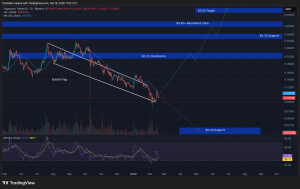
The number of people out of work and not looking for a job has surged to a near-record high, largely driven by ill health.
More than 9.5m people were classed as economically inactive in the three months to June, according to the Office for National Statistics (ONS).
The figure, which increased rapidly during the Covid lockdowns, was initially driven up by young adults under 24, however, more recently, older people over 54 are falling into this category.
The level of inactivity – a gross figure which has not been adjusted for the time of year – was the highest since 2011.
Some 2.8m people were out of work through long-term sickness, which was close to a record.
The high numbers have meant that UK businesses are increasingly reliant on bringing in skilled workers from overseas.
Many of these staff are from India and China, who are taking the place of workers that might have come from Europe before Brexit.
The Chancellor Rachel Reeves has signalled that she plans to shift a significant number of “economically inactive” people back into the workforce.
Details of how this will be achieved have not yet been set out, however it will include deploying health experts in jobcentres.
People in this group could also be encouraged into the workplace with a pledge that this will not mean that they immediately lose their benefits.
Responding to the figures, Rachel Reeves, said: “Today’s figures show there is more to do in supporting people into employment because if you can work, you should work.
“This will be part of my Budget later in the year where I will be making difficult decisions on spending, welfare and tax to fix the foundations of our economy so we can rebuild Britain and make every part of our country better off.”
The British Chambers of Commerce called for massive investment in training to ensure British workers have the skills demanded by business.
Its deputy director of public policy, Jane Gratton, said: “Bridging the UK’s long-standing skills gap will be crucial to bringing more balance to the labour market.
“The focus must be on creating an education and training system that properly prepares young people for the world of work. It must help adults to return to work, stay in work, and continuously upskill and reskill for a rapidly changing workplace.”
Julia Turney, partner at pensions experts Barnett Waddingham, said: “The UK labour market continues to face persistent challenges as the country continues to deal with an ageing, disengaged, and economically inactive population.
“The workforce we are dealing with today is older, increasingly remote, and more in touch with mental health challenges than ever before.
“Earlier this year Mental Health UK found that in the past year, one in nine UK adults had experienced high levels of stress that contributed to them also taking time off work during that period.
“If we are to meet the Government’s ambitious goal of ‘rebuilding our country’ and strengthening the labour market, we must tackle these issues head-on.
“This will not only require a concerted effort in promoting wellbeing and resilience in organisations across the country, but targeted support from the Government to reduce the economically inactive, and get us back on track.”
Alexandra Hall-Chen, of the Institute of Directors, said: “The availability of skills and labour remains a pressing issue for employers, and economic inactivity remains significantly higher than prior to the pandemic.
“Without effective action to bring more people back into the workforce, sustained economic growth will be all but impossible.”
Neil Carberry, chief executive of the Recruitment and Employment Confederation, said employers have little option but to look overseas.
“Someone who is willing to change country to work is highly motivated to work – they are coming in and engaging in the job search,” he said.

















